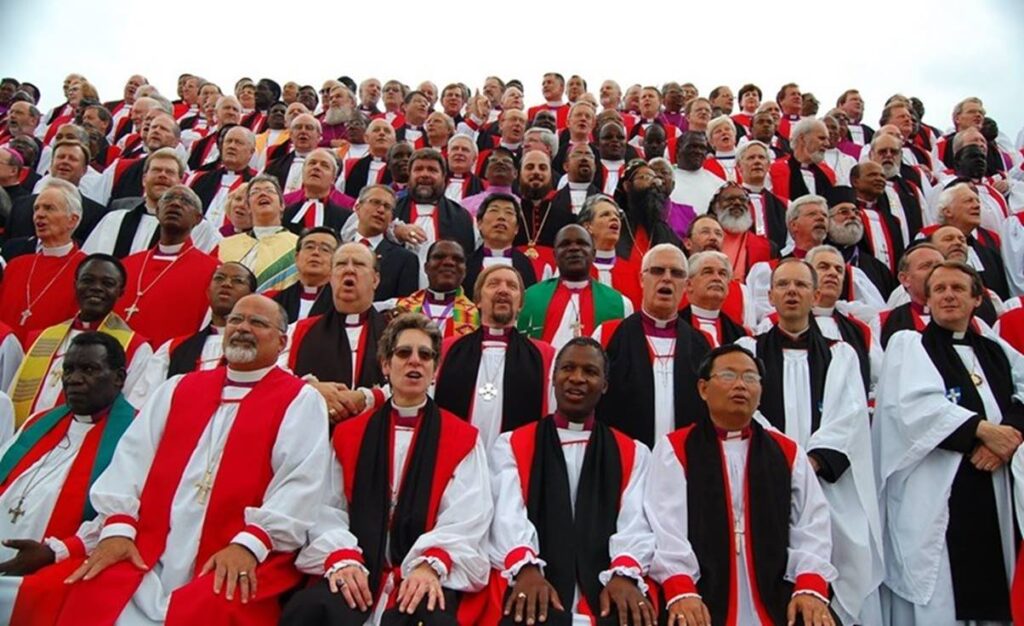by Anon

My experience of abuse by a member of clergy is ongoing. Like many in my position, I was not fully aware of the severity until a critical point was reached: a single point in time, which denotated explosive chain reactions, revelations, and confrontations. In the immediate aftermath—dazed, air still shimmering with fallout—I considered why the word victim didn’t resonate with me, but the word survivor did.
Was my discomfort due to the fact that victim can imply a lack of agency? Or because the word maintains a link to the abuser? No, I decided. It’s the inert state that troubles me: the sense that a victim is the result of a finite series of actions. The implication that this status is permanent and cannot be altered further. The premise that the identification of a victim and a perpetrator means justice has been served. The assumption that a victim continues to live without any expenditure of effort or energy, floating like wreckage upon the waves: that there are no aching muscles or gasping breaths, no frantic treading of water. The active and continuing nature of the word survivor seemed preferable to any of this.
Survival is work. It is work without any tea breaks or days off. Abuse doesn’t magically stop once a report is made; it often intensifies after the survivor attempts to sever contact with the abuser. The entire process by which one reports abuse is inherently traumatic. Physical, psychological, spiritual, and financial effects are not resolved by filing a safeguarding report. When people talk about survivors, often they are speaking about people who must actively choose to survive every single day, hour, minute. Struggling with the effects of trauma is often perceived as weakness. I have heard clergy speak with discomfort about the safeguarding training they had to undergo, as if they were above contemplating non-abstract crimes and abuse. They don’t want to think about such concrete things, about the wickedness human beings are capable of committing. Neither do survivors, but survivors have no choice in the matter.
Abuse reverberates; it ripples, sending shockwaves backwards and forwards in time. It rips through past, present, and future. The damage is irrevocable and irreparable. Memories become tainted by new information. The present is an unbearable landscape of bureaucracy and sadness, an endless battle stretching into the distance. Hope is stripped from the future. When the Church delays the outcome of a case, when it deliberately lets a case stagnate, when it blocks paths to justice and resolution, there is no discernible future.
How do you measure a life in limbo? How do you quantify time irretrievable? The loss of opportunities, the stagnation of career or education? The isolation, the exhaustion, the shame, the fear? The absence of smiles, of joy, of dreams, of the desire to dream? The insomniac nights, or the ones filled with nightmares – which weigh heavier on the scales of torment? Is it worse to dream, unwillingly, of my abuser, or to lie awake, unwillingly, yearning for justice from a Church whose accountability to survivors is lacking? From a Church that would prefer I didn’t exist?
The act of reporting abuse by a clergy member represents a deed of tremendous faith in the Church—and, by extension, in the safeguarding policies and machinery in place (ostensibly) to protect parishioners. Once a report is made, a special relationship exists between the Church and the survivor. In some sense, a fiduciary duty is created. Reporting abuse entails a great deal of risk, especially when one lives with one’s abuser or is otherwise vulnerable. A survivor may be putting their life on the line to file a safeguarding report. This amount of trust and risk must be met with the highest standards of care and respect.
What should that standard of care look like? At the very least, it must include adhering to Anglican safeguarding policies as they are written.
As I agonised over reporting my abuser, I read every scrap of information on the safeguarding website for the Church of England. I read every policy, procedure, and guideline applicable to my situation, and many that were not. (This is part of the immense unpaid work a survivor must do.) My decision to file a safeguarding allegation was predicated on this information. I noted how a survivor was required to be supported throughout the process, and what other avenues were open to me for counselling and help. I educated myself about safeguarding agreements, clergy disciplinary measures, and the roles various individuals were meant to play in relation to the complainant and the recipient.
I trusted with my whole heart that this process would be followed.
What happened (and is happening) instead continues to shock me. Relying on written safeguarding policies was a grave mistake, as these have not been followed. I have learned that even a case of recent abuse with copious evidence can be handled horrifically by the Church. After writing a detailed account of the abuse I suffered at the hands of a clergy member, I now must continually document the neglect, delay, and abuse committed by those involved with the safeguarding case—people I trusted to protect me and others. Every failure to act, every delay, every obstacle feels like a beating. This is nothing less than institutional violence. And, perhaps more importantly, it entails work. Exhausting, emotionally draining, unpaid work. This, too, is the work of surviving.
It is hard to think of a single example in all of history when perpetrators of oppression successfully carried out a reformation of their own behaviour—or even tried. Discussions of institutional accountability often include the question, “Who watches the watchmen?” The gist is that those who police are fallible and must themselves be policed. Accordingly, the February 2025 general synod of the Church of England rejected an independent safeguarding structure. So, who is watching the watchmen? Survivors. Survivors are the ones keeping the Church accountable. The very people who have been doubted and ostracised are the ones testing the rickety scaffolding of Anglican safeguarding policies and exposing the faults. But survivors do this at their own risk. Such risk is not only psychological. John 3.20 states, “For everyone who does wicked things hates the light and does not come to the light, lest his works should be exposed.” Do not underestimate what a person will do to avoid exposure. There are survivors who have good reasons to fear for their lives.
In examining the Bible for passages about honesty and truth, I ran into problems. I am neither a pastor nor a theologian, but it became painfully obvious that one must be very cautious in interpreting the word “truth” in the New Testament. Most if not all references pertain to Christ, or to the specific truth of the Gospel. Of course, Scripture condemns deceit and preaches honesty, but misappropriating these references to truth would bring no comfort; it is hard to fool oneself when one knows better.
I did realise two things while considering Scripture and the voices of survivors. First, survivors of clergy abuse carry within themselves a great truth—a truth much greater than blood and bone. They bear the trauma of betrayal by a Church they (may) love, by clergy they trusted, by a system they believed, and seemingly by God. They carry this burden inside of them and continue to bear witness to truth—if not through words, then through their continued existence in the face of adversity. Second, remaining silent is torture for a survivor who feels compelled to speak. For those who feel the prick of obligation, what they have endured and continue to endure must see the light of day. The survivors who report and who speak represent innumerable survivors who cannot. Voices for the voiceless.
The delays and failures of the Church in handling safeguarding reports and in providing support for survivors are shameful enough. On top of this, survivors are often ordered to remain silent, while issuing no such directive to the (alleged) perpetrator. Furthermore, there is no reward for good behaviour; survivors are given no additional respect for complying with gag orders. There is merely more neglect, delay, and covering-up. I am now convinced that there is no “perfect victim” of clergy abuse. There exists no model for a mythical survivor who is instantly believed and supported by the Church of England. The notion of a “perfect victim” is damaging regardless, but its complete absence here is noteworthy. It is more appropriate to view survivors of clergy abuse as whistleblowers. It was only within this framework that I could begin to comprehend why the Church treats survivors as cruelly as it does and why the Church would seek to silence survivors’ voices.
There are days, and nights, when I feel the truth in every heartbeat; its sheer power threatens daily to undo every joint and sinew in my body. I do not speak for all survivors, but I know that this great and horrifying reality cannot dwell quietly within me for the rest of my days. We cannot be friends, or even bitter roommates, in this temple. Truth be told, and quickly.










